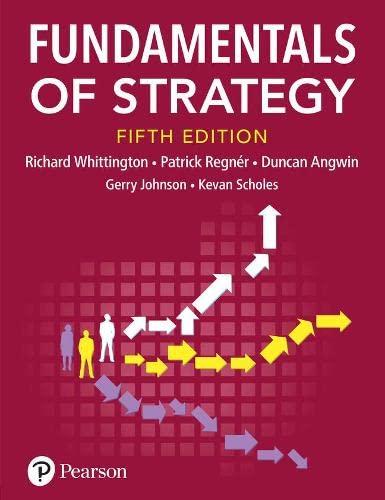How has Rovio changed its business model over time? What are the advantages and disadvantages of a
Question:
How has Rovio changed its business model over time?
What are the advantages and disadvantages of a freemium business model?Introduction Rovio Entertainment Ltd are pioneers in mobile games and are most famous for their Angry Birds characters. In the game, players use a slingshot to catapult colourful birds at their enemies (the egg-stealing pigs), with the goal of destroying them. The game stormed to the top of the charts and became the largest mobile app success the world has ever seen with more than 3 billion downloads globally. Over the years, Rovio has stood firmly behind their intellectual property (IP) and determination to build a lasting brand, despite speculation by critics that Angry Birds were just a one-hit wonder and fears they can lose their fans as quickly as they came due to the short attention span of consumers. The founders, however, have said that the game was always the first step of the vision to build a global entertainment empire that they methodically set out to create.
The early days The game that took Rovio to the top in the entire mobile gaming industry was neither the company’s first game nor was it their first year of operation. The Finnish entrepreneurial venture started in 2003 when the two cousins Mikael Hed and Niklas Hed decided to create their own original intellectual property to take to the global market instead of creating and selling games for other companies.
They initially thought they would have to do 10 to 15 titles to get the right one, but the team developed 51 games before Angry Birds. Angry Birds was an overnight success, but it took eight years to build a game for iPhone and abandon other platforms. Conquering the App Store was an integral part of the plan to save the company that was on the brink of bankruptcy in 2009 when the game was released. The App Store enabled worldwide distribution.
The cousins’ aim was to focus on local markets to begin with rather than the most lucrative English-speaking markets. The game became number one in smaller markets:
Finland, Sweden, Denmark, Greece and the Czech Republic before getting any traction in the UK and USA.
When it got on the front page of the UK App Store in 2010 it rapidly became the number one app in the US App Store. By 2011, Angry Birds and its various branded spin-offs had earned €50m, on the back of a game which originally cost €100,000 to develop. Forty per cent of that income stemmed from activities not related to the game –
from the toys and other licensing deals. As shown in Figure 1, revenues continued to grow considerably, not least thanks to a booming merchandise business.
Step by Step Answer:

Fundamentals Of Strategy
ISBN: 9781292351377
5th Edition
Authors: Richard Whittington, Patrick Regner, Duncan Angwin, Gerry Johnson, Kevan Scholes





